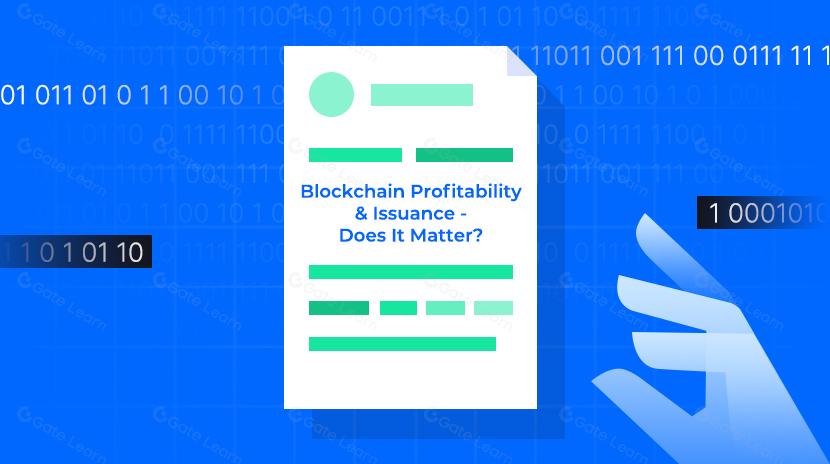Pros and cons of investing in Bitcoin ETFs
Gain a deeper understanding of the essence of Bitcoin investing. This article provides the latest market trends, investment strategies, risk assessments, and unique insights from industry experts, helping traders make informed investment decisions amidst the wave of digital currencies.The growing interest in cryptocurrency investments
The increased interest in cryptocurrency investments reflects a significant shift in the global financial scene. Cryptocurrencies like Bitcoin
, Ether
and others have attracted tremendous appeal due to their potential for high returns and their position as a hedge against traditional financial market instability.
There are multiple reasons behind this growing interest. For instance, the decentralized nature of cryptocurrencies provides security and independence from conventional banking structures. Additionally, the growing acceptance of blockchain technology across industries emphasizes the potential of cryptocurrencies to revolutionize financial transactions and payment systems.
Furthermore, the crypto market has attracted both experienced investors and beginners due to the prospect of rapid profits. But there’s a lot of risk and volatility, so cautious investing methods and in-depth market knowledge are required.
Evolution of Bitcoin ETFs
The increasing popularity of cryptocurrency investment products such as cryptocurrency mutual funds and cryptocurrency exchange-traded funds (ETFs), including Bitcoin ETFs, indicates a dynamic shift in how people invest in digital assets.
Because of the volatility and regulatory uncertainty surrounding cryptocurrencies, traditional investment frameworks initially hesitated to include them. However, the creation and acceptance of these novel financial products is a direct result of the growing acceptability of cryptocurrencies by the general public.
For example, crypto ETFs have given investors a more regulated and familiar option to invest in cryptocurrencies without dealing with the hassles of managing real digital assets. The development of Bitcoin ETFs is noteworthy. Regulators have rejected spot Bitcoin ETFs several times, citing worries about volatility and market manipulation. These denials demonstrated how wary regulatory agencies are about exposing people directly to cryptocurrencies.
Nonetheless, the narrative shifted as the need for cryptocurrency exposure grew. The concept gained traction over time, and spot Bitcoin ETFs were eventually approved. This is a pivotal moment in integrating cryptocurrencies into the investment mainstream.
Direct Bitcoin investment vs. other cryptocurrency investment vehicles
Direct Bitcoin investment involves purchasing and holding Bitcoin itself, typically through a cryptocurrency exchange. This strategy exposes investors directly to fluctuations in the price of BTC.
Indirect exposure is provided via other crypto investment vehicles, such as mutual funds, exchange-traded funds or futures. These financial instruments enable the purchase of crypto derivatives or a portfolio of cryptocurrencies, offering a diversified and frequently regulated method of investing.

Advertisement
Trade smart with Markets Pro instant alerts. Claim your 65% discount now!
Pros of investing in Bitcoin ETFs
There are several benefits to investing in Bitcoin ETFs, particularly for individuals who want exposure to the cryptocurrency without actually buying any of it. The key benefits of purchasing Bitcoin ETFs are explained below:
Ease of access
Bitcoin ETFs streamline the investing process by enabling investors to purchase shares using conventional brokerage accounts. This is especially helpful for people unaware of the subtleties of crypto exchanges. For instance, a stock trader with experience can add a Bitcoin ETF to their portfolio using brokerage platforms without comprehending the intricacies of private keys and digital wallets.
Regulatory oversight
The fact that Bitcoin ETFs function within regulated financial systems improves investor protection. Moreover, it creates a secure investment environment by ensuring openness and adherence to financial regulations.
One significant development was the SEC’s 2021 approval of the first U.S. Bitcoin futures ETF, which provided investors with a regulated opportunity to participate in Bitcoin. Also, on Jan. 10, 2024, the SEC approved spot Bitcoin ETFs, a significant milestone in integrating cryptocurrencies into mainstream financial markets.
Diversification
With a new asset class, Bitcoin ETFs provide a way to diversify investment portfolios. Including a Bitcoin ETF in a portfolio can aid in risk distribution because BTC frequently has a low correlation with conventional assets like stocks and bonds. For instance, the price of Bitcoin may fluctuate on its own when traditional markets are underperforming, possibly providing a hedge against market declines.
Liquidity
When it comes to cryptocurrency investments, ETFs typically offer more liquidity than direct investments. This implies that during market hours, investors can easily purchase and sell shares of a Bitcoin ETF at market rates. This liquidity is essential because it enables a quicker reaction to market fluctuations, particularly in volatile markets.
Tax efficiency
Investing in Bitcoin ETFs may be more tax-efficient than direct Bitcoin investments. This is due to the special tax treatment that ETFs frequently enjoy. For example, in some jurisdictions, ETFs have favorable tax rules that prevent the realization of capital gains until the investment is sold. In contrast, taxable events related to direct Bitcoin investments may arise from transactions such as selling or exchanging Bitcoin.
Cons of investing in Bitcoin ETFs
Investing in Bitcoin ETFs, while offering numerous benefits, also comes with certain drawbacks that investors should consider. Below are the various cons of investing in Bitcoin ETFs:
Volatility
Exposure to the extreme price volatility in cryptocurrency markets is one of the significant disadvantages of Bitcoin ETFs. Bitcoin and its ETFs can experience sharp price fluctuations in a short amount of time. For example, it is not uncommon for the price of Bitcoin to change by more than 10% in a single day, which might disturb investors who are not used to such volatility.
Market risk
Purchasing Bitcoin ETFs exposes investors to security and regulatory issues that are common in the cryptocurrency space. The cryptocurrency market is still in its infancy and is constantly changing. It also confronts regulatory and compliance challenges from many jurisdictions.
Additionally, the market is susceptible to security risks like hacking incidents. For example, regulatory crackdowns in major markets like China have historically led to significant market downturns.
Fee structures
Compared to conventional ETFs, the fees of Bitcoin ETFs may be higher. The expenses incurred in maintaining and safeguarding the underlying cryptocurrency holdings are the justifications for these fees.
For example, an ETF that tracks Bitcoin may have an annual expense ratio (the annual percentage of assets deducted to cover management and operational costs) higher than an ETF that tracks stocks or bonds, which could eventually reduce investment returns. However, the approval of spot Bitcoin ETFs has sparked a fee war among issuers, leading to significantly reduced fees for some ETFs, with some as low as 0.20%.
Indirect ownership
Investors who purchase Bitcoin ETFs do not directly possess any Bitcoin. Instead, they are investors in a fund that holds Bitcoin. As a result, individuals miss some of the advantages of having direct ownership of Bitcoin, such as the capacity to transact with it or keep it in their possession as an asset without needing an intermediary.
Tracking error
The performance of a Bitcoin ETF and the actual market performance of Bitcoin may differ from one another. This tracking error occurs due to factors including fund expenditures, how Bitcoin exposure is obtained (such as through futures contracts), and the interval between market trades and fund rebalancing.
For instance, an ETF based on Bitcoin futures would not always accurately reflect changes in the price of real Bitcoin, particularly in volatile markets.
Essentially, tracking error measures the divergence between the performance of an investment portfolio or fund and its benchmark index, indicating the effectiveness of the fund manager in replicating the index’s returns.
The future of Bitcoin ETFs
With the recent approval of spot ETFs, the future of Bitcoin ETFs looks promising and is expected to develop significantly. The introduction of spot Bitcoin ETFs marks a crucial development, which gives investors direct exposure to BTC prices and brings them closer to the market performance of the cryptocurrency.
This development is anticipated to attract a broader range of investors, including individuals interested in the crypto market but who prefer regulated financial instruments. Additionally, these investment vehicles are more accessible and enticing due to the growing competition among ETF providers, which results in lower fees. Overall, the landscape for Bitcoin ETFs is evolving toward greater maturity and integration into mainstream investment portfolios.
Disclaimer:
- This article is reprinted from [Cointelegraph], All copyrights belong to the original author [GUNEET KAUR]. If there are objections to this reprint, please contact the Gate Learn team, and they will handle it promptly.
- Liability Disclaimer: The views and opinions expressed in this article are solely those of the author and do not constitute any investment advice.
- Translations of the article into other languages are done by the Gate Learn team. Unless mentioned, copying, distributing, or plagiarizing the translated articles is prohibited.
相關文章

區塊鏈盈利能力和發行 - 重要嗎?

比特幣年第二章

Notcoin & UXLINK:鏈上數據比較

Solv協定:集中式去中心化金融趨勢下的資產管理新範式

每個加密貨幣交易者都應該知道的前 5 種圖表模式


